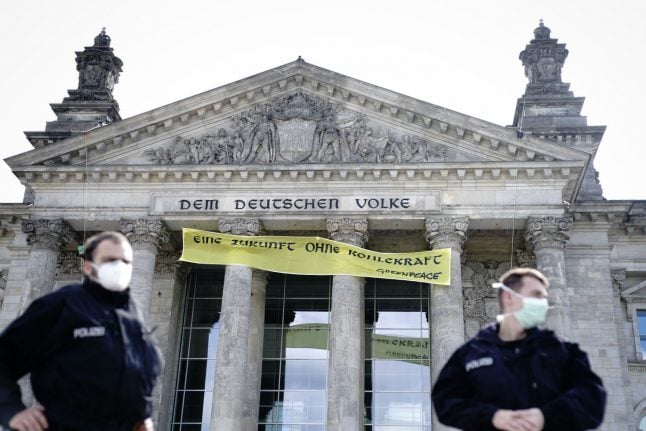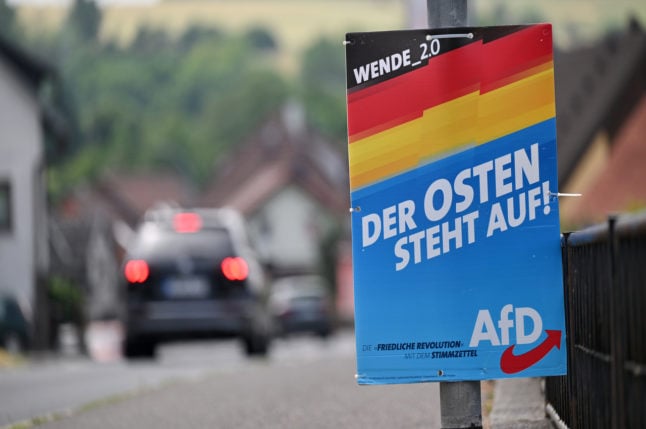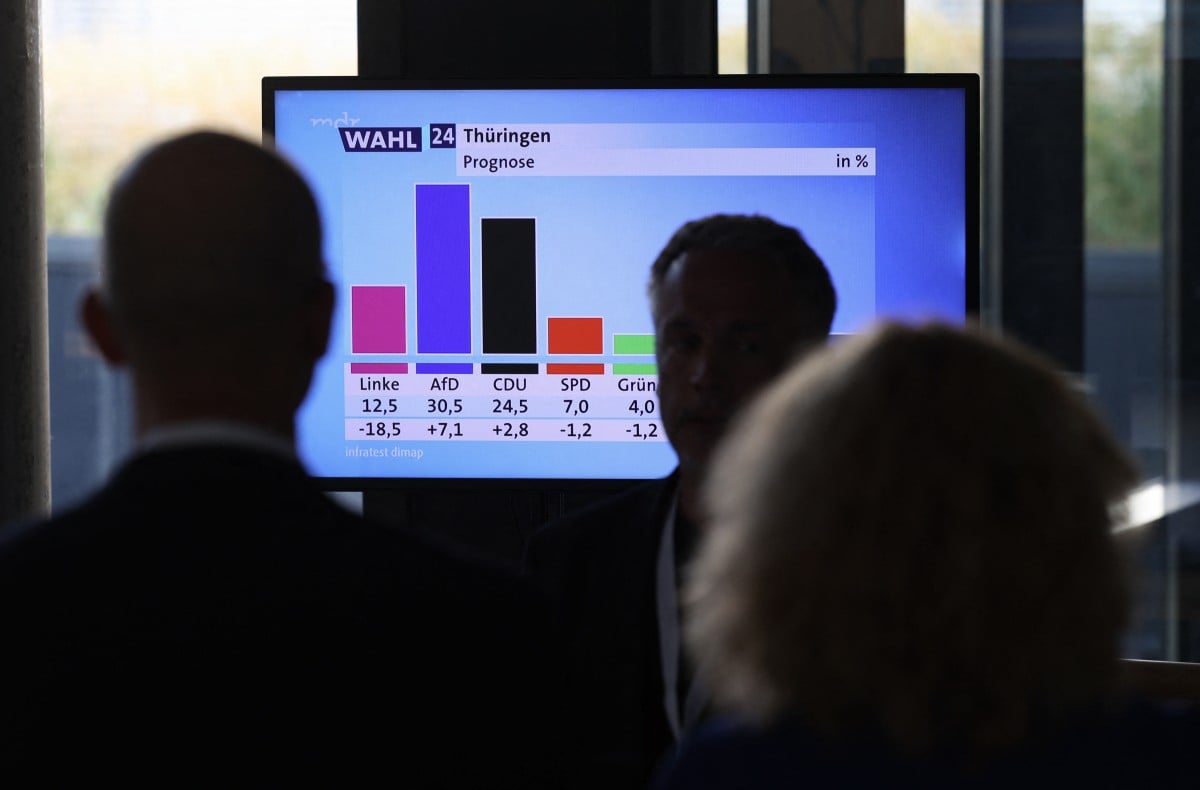Demonstrators are angry at the drawn-out timetable that will see coal plants only gradually taken offline over the coming 18 years, as well as at what they say are over-generous payments to energy companies that more than compensate any lost profits.
“The fossil fuel age is irrevocably coming to an end in Germany with this decision,” Economy Minister Peter Altmaier told lawmakers inside the chamber, urging opponents not to “talk it down”.
Outside, NGO Greenpeace hung a giant banner demanding “a future without coal power” from the Reichstag building's pediment, its script aping the historic structure's famous dedication “to the German people”.
Greenpeace-Aktivist*innen haben die Inschrift “Dem Deutschen Volke” am #Reichstag heute um “eine Zukunft ohne Kohlekraft” erweitert. Das #Kohlegesetz der #GroßeKohleKoalition ignoriert 1,5°C-Ziel und darf so nicht beschlossen werden #keingeldfuergestern ?https://t.co/5X7Vvgfcym pic.twitter.com/xoNUValQHF
— Greenpeace e.V. (@greenpeace_de) July 3, 2020
Since ministers agreed the law in January, campaigners including the youth-led Fridays for Future movement have turned to demonstrations calling for a much faster timetable for the end of coal use.
Activists in February occupied a new power plant known as Datteln 4, set to begin generating under the new law, before targeting two opencast coal mines last week.
READ ALSO: 'Climate crime': Activists occupy two German coal mines
Chancellor Angela Merkel's government has stuck to its course.
“Today could have been a historic day. It's bitter because this law does not include the climate protection that is needed in these times,” opposition Greens party leader Annalena Baerbock told Deutschlandfunk public radio.
Especially galling to environmentalists is a total of €4.3 billion ($4.8 billion) set to flow to power companies, alongside €40 billion ($45 billion) of government aid for regions that depend on mining and energy jobs.
By keeping energy supply predictable, the law will sustain Germany as an industrial hub, leader of the IG BCE mining and energy workers' union Michael Vassiliadis told news agency DPA.
But “we've been debating the exit for too long. We ought to finally come up with a ramping-up plan, for building up renewable energy and the grid,” he added.
Germany aims to reduce greenhouse gas emissions by 55 percent compared with 1990 levels by 2030 under targets agreed in December.




 Please whitelist us to continue reading.
Please whitelist us to continue reading.
Member comments